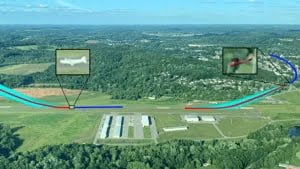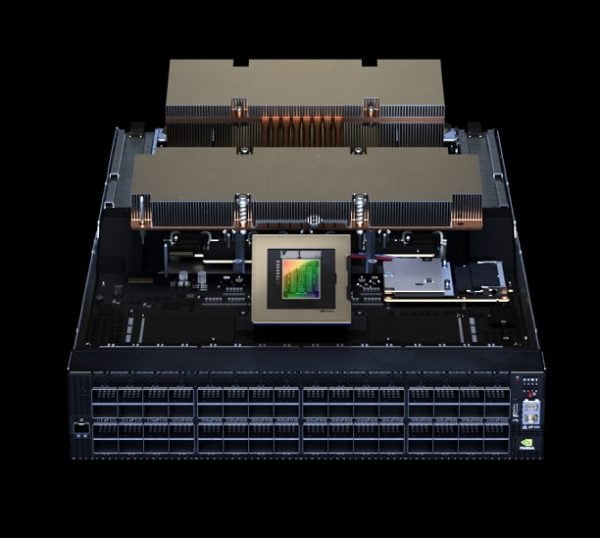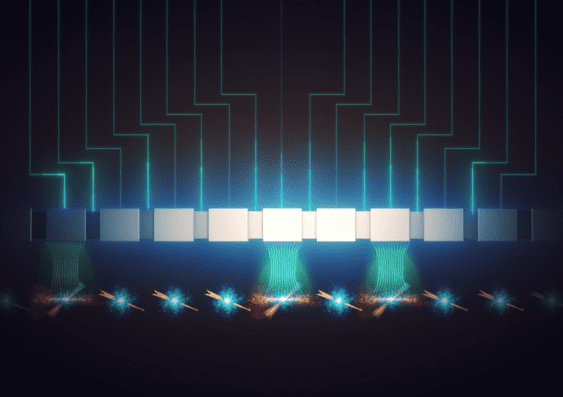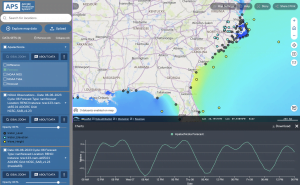
From access cards and key fobs to Bluetooth speakers, the security of communication between wireless devices is critical in maintaining privacy and preventing theft. Unfortunately, these tools are not foolproof and information on how to hack, clone and bypass these systems is becoming easier to find. The post NSF-Sponsored Study Exploits Quantum Physics for Superior […]

Researchers at the the University of Warsaw’s Faculty of Physics have developed a new, highly efficient technique that makes quantum information transmission dozens of times faster. The results of the research, published in the journal Nature Photonics, may in the near future contribute to the development of superfast quantum internet connections. The post Researchers at […]

Artificial intelligence is great at doing specific tasks. But AI algorithms tend to be inflexible, not able to pick up new jobs without extensive re-refinement. The AirLab team at Carnegie Mellon University’s Robotics Institute has used PSC’s Bridges-2 system to develop a series of approaches that can allow a robot to pick up new capabilities […]

In 2018, Illinois researchers were among the first to experimentally demonstrate a new phase of matter called a quadrupole topological insulator — a unique species of material that can lend a helping hand in the search for new quantum technologies. Now, several years after the initial discovery, they and collaborators in Germany have successfully downsized […]

Bubbles could block a promising technology that would separate carbon dioxide from industrial emissions, capturing the greenhouse gas before it contributes to climate change. A team of researchers with backing from the Department of Energy’s Exascale Computing Project (ECP) is out to burst the barrier, using a code that captures the floating blisters and provides […]

Nvidia launched a new Ethernet-based networking platform – the Nvidia Spectrum-X – that targets generative AI workloads. Based on tight coupling of the Nvidia Spectrum-4 Ethernet switch with the Nvidia BlueField-3 DPU, Spectrum-X delivers 1.7x better overall AI performance and power efficiency, along with consistent, predictable performance in multi-tenant environments, according to Nvidia. The post Nvidia […]

Despite their immense promise to solve new kinds of problems, today’s quantum computers are inherently prone to error. A small perturbation in their surrounding environment— a change in temperature, pressure, or magnetic field, for instance—can disrupt their fragile computational building blocks, called qubits. The post ‘Noise-Cancelling’ Qubits Developed at Uchicago to Minimize Errors in Quantum […]

The fourth most common neurological disorder in the world is epilepsy, according to the Epilepsy Foundation. Individuals who have the disorder experience surges of electrical activity in their brains that can cause recurring seizures. At the base of those electrical signals is a protein called the ionotropic glutamate receptor (iGluR). Problems with this protein cause […]

As scientists look to the future of energy production, renewable resources remain one of the most important areas of study. By their very nature, resources like coal and oil will eventually run out. There are also extreme environmental impacts involved with every step of production when using fossil energy sources. Researchers from Cornell University recently […]

Over the past three years, the Renaissance Computing Institute (RENCI), a data science research institute at UNC-Chapel Hill, has been developing a state-of-the-science, cloud-ready data engine, visualization, and information delivery system called APSViz. As a core project within the Department of Homeland Security’s Coastal Resilience Center at UNC-Chapel Hill, APSViz disseminates real-time coastal hazards information […]










